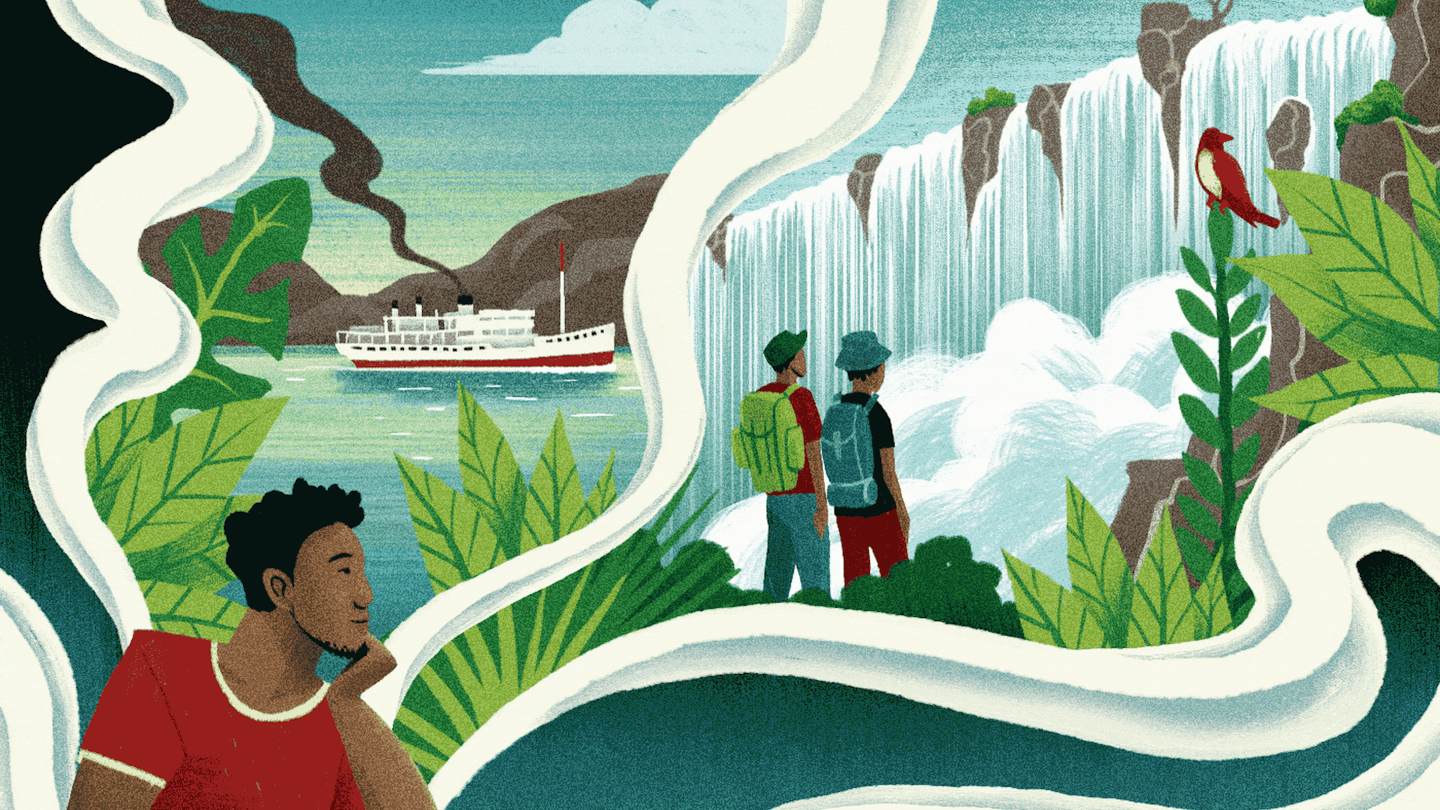
Kenyan writer Carey Baraka was ready to set off on the first adventure in what he hoped would be decades of wandering. Then, the pandemic hit – and laid bare the challenges of traveling in Africa as an African.
During this period of limited travel, I reflect on how many versions of ourselves have been lost. One of my ambitions has always been to adopt a nomadic lifestyle—ceasing to pay rent, own furniture, or have the burdens of daily maintenance. Instead, I envisioned myself as an itinerant traveler, spending nights in various hotels while immersing in different cultures. I imagined learning to greet people in numerous languages and becoming a super user on travel platforms.
As a child, my dream was to be a contestant on the TV show The Amazing Race, exploring trails in Brazil or running through streets in Spain in search of clues. During college, a friend and I even practiced saying “I can’t speak this language, but I speak English” in French, Spanish, and Portuguese. I promised myself that this adventurous life would begin post-university, believing that such a lifestyle would lead to greater happiness.
However, upon graduating in 2019, I faced an emotional crisis rather than a journey immediately. After a series of personal tragedies, I left Nairobi and retreated to my grandparents’ home in the western part of Kenya, seeking solace and a chance to regroup. My phone was mostly off, allowing me the space to reflect. I immersed myself in reading, writing, and enjoying nostalgic movies.

A Trip Imagined
In the midst of my reflections, I often spoke with my friend Stacy, one of the few connections I maintained. We have been friends since childhood, but it was only recently that we discovered our mutual interest in travel and a desire to lead a life of exploration. Our dreams merged into itineraries, and we settled on a multi-country trip from Kenya to Tanzania, specifically the city of Kigoma on Lake Tanganyika, and onward to Zambia and Victoria Falls.
Throughout numerous conversations, our trip took shape. We discussed timelines, budgets, and routes while saving money and renewing passports. April 2020 was earmarked as our month to set out. The excitement of planning fueled me with anticipation as I envisioned crossing into Arusha, Tanzania, known as the safari capital of the world. Our plan was to embrace spontaneity, spending an unknown amount of time in each destination.
Kigoma, located a thousand kilometers west of Arusha, rests on the shores of Lake Tanganyika, adjacent to both the Democratic Republic of Congo and Burundi. With plans to take a week exploring various small towns, we aimed to become wanderers, discovering ourselves along our journey. Our goal was simplicity, moving at our pace without financial strain.
Kigoma was especially alluring due to a historical ship, MV Liemba. This vessel, part of the German naval fleet during WWI, has endured over the decades, still operating across Lake Tanganyika every week. The journey itself, alongside its rich history, sparked my curiosity and excitement.
We anticipated spending about a week traversing the country before reaching Zambia’s border. Again, spontaneity was our guiding principle, allowing us to explore the charm of various towns. Ultimately, we pictured our final stop at Victoria Falls, also known as “Mosi-oa-Tunya,” where we hoped to experience its breathtaking spray.
Of course, we acknowledged the likelihood of running out of money mid-trip, resulting in a return to Tanzania, possibly utilizing the historic Tazara railway line to head towards Dar es Salaam. There we visualized unwinding on a sunlit beach, indulging in final moments of leisure before returning to Kenya.

A Trip Deferred
As April approached, I looked forward to this pivotal journey—the first multi-country adventure for either of us. However, the pandemic abruptly altered those plans, and as March unfolded, Kenya confirmed its first case. Borders closed, and a series of restrictions were enacted, leaving us stuck in limbo.
Months into the pandemic, my travel dreams gradually faded. I met a photographer friend in an Ethiopian restaurant in Nairobi as dusk fell before the curfew. We discussed travel, and I shared experiences from visiting Lake Turkana, the extraordinary desert lake that straddles the border with Ethiopia. The tranquility of the jade-colored waters had captivated me.
He recounted a road trip he took with friends through Mozambique toward South Africa, where unexpected challenges arose, invoking feelings of uncertainty and anxiety. I found myself envious, reflecting on the complexities of travel.
Envy often creeps into the minds of future travelers. We might envy those who can travel freely without financial constraints or the privileges associated with certain passports that allow spontaneous journeys.
A Trip Just a Vaccine Away
Travel has always carried inherent inequalities, which were exacerbated during the pandemic. New dialogues on responsible travel practices have emerged, addressing these profound disparities.
While individuals from several Western countries have been able to vacation in the Global South during the pandemic, the reverse has been largely unattainable. For instance, DJs fleeing restrictions in Germany flocked to Tanzania’s coastal hot spots, particularly the island of Zanzibar. In Lamu, a UNESCO World Heritage site, wealthy visitors have created a holiday scene reminiscent of Notting Hill in Africa, reveling in a sense of carefree adventure.
Conversations surrounding Covid passports are prevalent in Western nations, predicated on the notion that vaccines should be a prerequisite for intercontinental travel. However, in the Global South, the availability of vaccines remains scarce. For instance, while over half of Americans have been vaccinated, only a small fraction of those in Africa have received similar protections. Such disparities highlight a two-tier travel system, with the Global North in a more favorable position.
As news fills my social media feed with people rejoicing the prospect of summer escapades, I remain isolated, feeling disconnected from this wave of excitement. Recently, Stacy texted regarding a new trip within Kenya. I had to inform her of my inability to travel without revealing that it was due to Covid.




